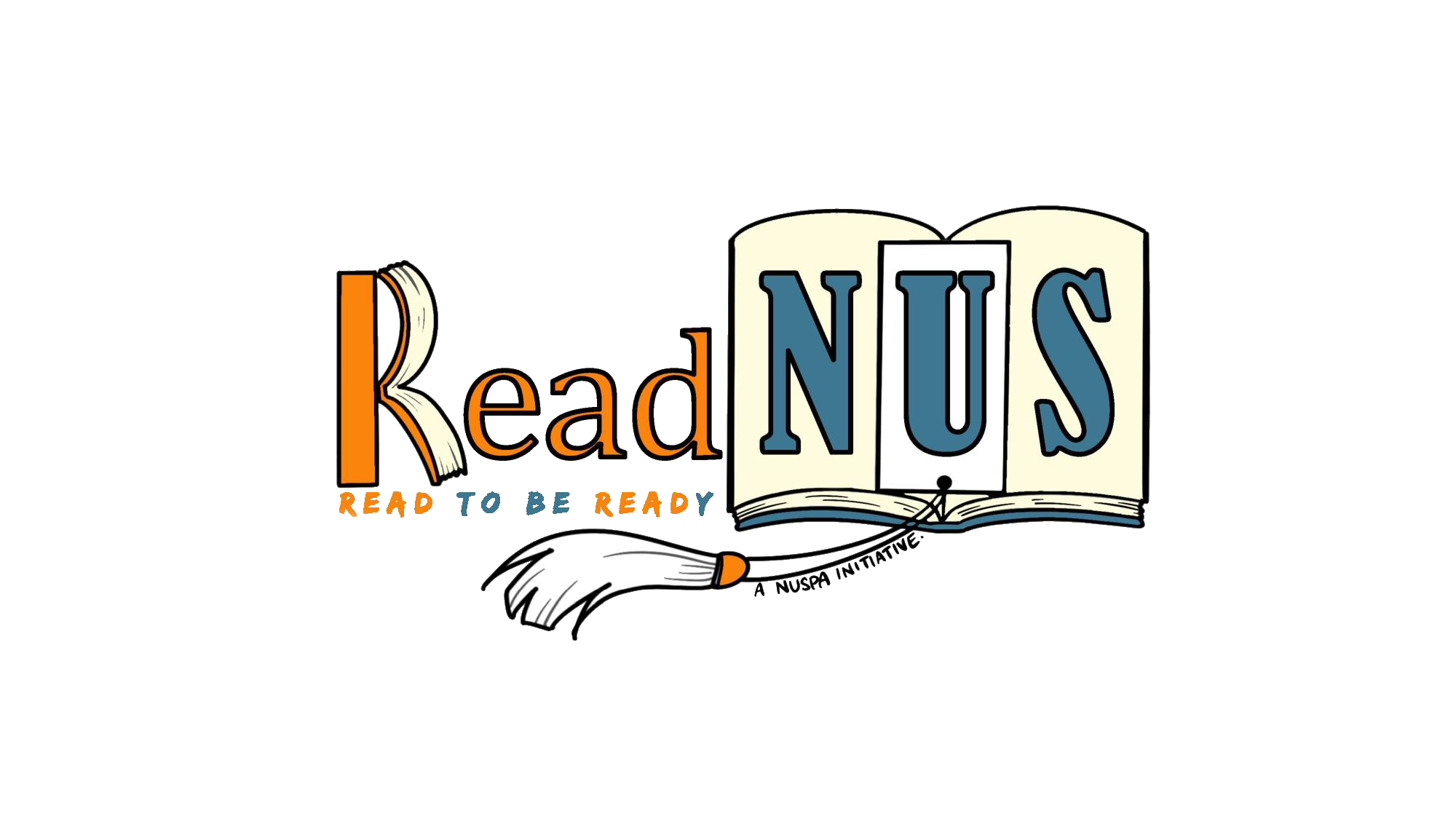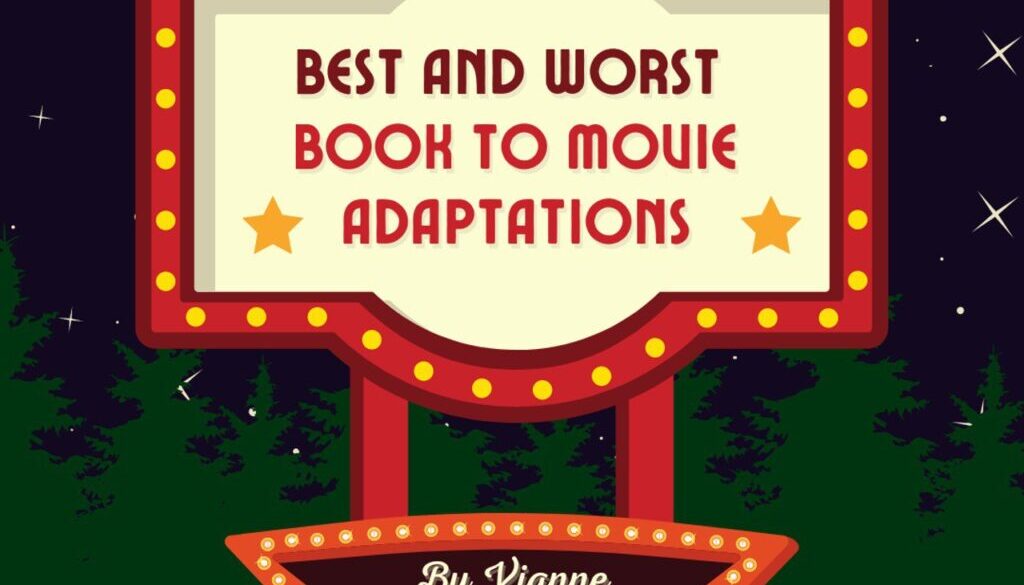Best and Worst Book-to-Film Adaptations
For as long as the film industry has existed, books have proven to be bountiful fodder for inspiration. As a result, innumerable book-to-film adaptations exist, and they range from those that are virtually unwatchable, to those that are near perfection. This article aims to sort through the mass of film adaptations; it includes three of my personal favourites and three adaptations that have been the most disappointing to me.
Best
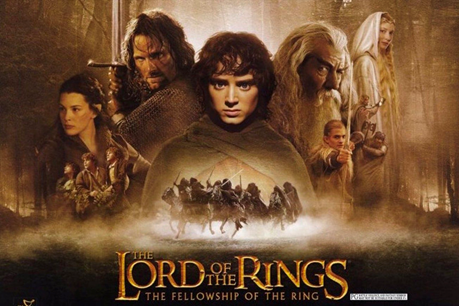
1. The Lord of the Rings
It’s no wonder that the Lord of the Rings (LOTR) trilogy has won a total of seventeen Academy Awards (in addition to being nominated for thirteen other Oscars). The LOTR series, directed by Peter Jackson, is one of the most flawless and painstaking book adaptations that have ever been made. Jackson’s films succinctly summarise and streamline the plot of Tolkein’s very lengthy books, which goes a long way in making the story immensely more digestible and entertaining. Every aspect of each film was perfectly created, from the dialogue, screenplay, intricate props and set design, to the flawless acting and the very epic soundtrack (which has a tendency to get stuck in your head for days after you watch the trilogy). Each scene reflects the high level of effort and time put into the production of the film, which was an understandably immense undertaking. Even the long runtime of each film is hardly a drawback — the films feel much shorter than they really are, and I always find myself longing for more, even after I’ve finished watching the extended versions of each film. The movie trilogy — equal parts humorous, exciting, and poignant — captures the essence of the original text, but adds an invaluable visual and auditory quality that the books don’t possess. It’s rare that a film adaptation achieves the same cultural impact as the book it’s based on, but the LOTR film trilogy has arguably managed to do so.
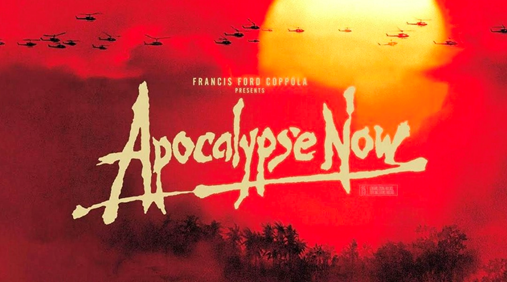
2. Apocalypse Now (based on Heart of Darkness)
Joseph Conrad’s Heart of Darkness was an assigned text that I had to read in Junior College. I trudged through the text wearily — Conrad’s rather opaque writing didn’t exactly resonate with me, and the darkness and heaviness of the novel’s themes meant that it made for a very dreary read indeed (to me, of course; I’m sure there are people that love it). Therefore, when we were made to watch Apocalypse Now in class, I wasn’t too happy about it. However, I couldn’t have been more wrong — it was altogether different. I’d expected the film to be a boring reiteration of the text, but it was gripping, suspenseful, and engaging in a way that the book never was. Francis Ford Coppola’s ingenious reinterpretation of Conrad’s story and ideas through a modern lens, and for a modern context (the Vietnam War), meant that the very same themes that were present in the original text suddenly held new meaning for me. Watching Apocalypse Now helped me to appreciate Heart of Darkness better, but I also greatly enjoyed watching the film itself. Coppola ultimately stayed true to the core message and themes of Conrad’s novel, but his reinterpretation of the classic meant that he created an original film that can be considered a cinematic masterpiece in and of itself.
3. Crazy Rich Asians
What puts this on the list is the fact that it is a major Hollywood film based on a novel set in Singapore and written by a Singaporean, with a predominantly Asian cast. Widely viewed (and with good reason) as a film that signified that an Asian-made and Asian-led film could be a mainstream box-office (and critical) success, the film can be considered a must-watch solely for that reason. But it’s also more than that — the film is touching, hilarious and highly entertaining, which perfectly captures the irreverent tone present in Kevin Kwan’s original novel. The film itself also pays homage to Singapore and Asian culture and values in an authentic and genuine manner, minus the stereotypes and cliches that so often pervade Hollywood-generated films. Nevertheless, the film is not perfect – it did draw some flak for failing to cast more actors from Asian minorities that are present in Singapore. This very valid criticism aside, however, it is still a more than decent attempt at successfully adapting an Asian-centred book for the big screen and mainstream audiences.
Worst
2.The Percy Jackson films
When I was younger, I was obsessed with the Percy Jackson series – it was simultaneously relatable and escapist at the same time, in addition to being funny and entertaining. Naturally, I looked forward to the films when they came out, but (spoiler alert) they were a huge disappointment, and quite possibly the worst book-to-film adaptations I had ever seen. The directors took liberties with the source material, altering events and characters in the books, thereby creating a monstrosity of a movie that can only be said to be unwatchable. The original plot — which consisted of an ingenious incorporation of Greek mythology into the present day, and its intersection with the story of a twelve-year old boy — had suddenly become a sensationalised teenage drama that was too mature (in terms of the themes and the significantly increased ages of the main characters) for its original intended audience. I just wished that the directors had stayed true to the essence and intentions of the original books, and respected the source material a bit more. As they say, if it ain’t broke, don’t fix it.
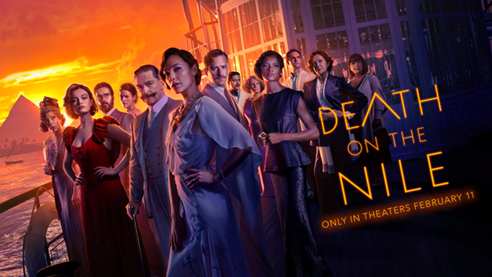
2. Kenneth Branagh’s Agatha Christie adaptations: Death on the Nile and Murder on the Orient Express
As with the Percy Jackson series, I’m also a fan of Agatha Christie’s murder mysteries. Immensely readable, intriguing, and suspenseful, her novels are an expert study of human character and behaviour. Nearly none of these traits translate to Branagh’s listless adaptations, however –—the characters have been reduced to two-dimensional caricatures, and not even the impressive A-list cast assembled by Branagh can salvage the poor characterisation in both films. In particular, Branagh’s take on Hercule Poirot veers on the cartoonish side, though this may have had something to do with his awful accent. The films’ slow pacing is also a further disservice (especially for Death on the Nile, which has a runtime of over two hours) to the overall quality of the films, since they are both based on stories that are already very well known. Their saving grace is that they are both visually stunning — Branagh’s films are glitzy, glamorous and glossy, with intricate sets and beautiful costumes that transport audiences to a bygone era. Despite this, however, Branagh’s adaptations ultimately fail to do justice to Christie’s original novels.
3. The Hobbit films
How does one short novel get stretched out into three long films lasting well over two hours each? Obviously, given the short length of the original novel, very little from the plot of The Hobbit actually happens in each film, which Jackson then seeks to supplement using details from Tolkein’s other works. The result? Three overly lengthy, diluted, and tedious films that become quite stale by the last instalment. The films are very clear attempts to milk the franchise for as much profit as possible, and it’s something that’s painfully obvious from each watered-down film. As a fan of Jackson’s LOTR trilogy, you can imagine my disappointment — I’d been looking forward to the films for a long time, but it became clear that The Hobbit films were nothing like the original film trilogy. Granted, the acting, set design, costume design, graphics, and CGI were, as expected, impressive, and it was nice to see characters from the original LOTR films reappear in these films again. Even these aspects were ultimately insufficient in saving the film series, however. In short, the series is at least one film too long – perhaps it would have been better if Jackson and the production team had based their decision that determined the number of films the series would have on the plot of the original novel, instead of money.
The disappointment I feel when I’ve watched a subpar book-to-film adaptation is always frustrating – after all, few things are worse than having wasted two hours of your precious and well-earned free time, when it could’ve been spent doing or watching something better. It’s therefore my hope that with this article of the best and worst film adaptations, you’ll be able to avoid wasting your time and feeling this way.
By: Vianne Chia
ReadNUS Editorial Member
